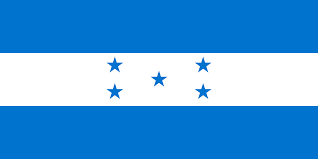6-Month Passport Validity Rule
August 28, 2018
If you are looking to travel out of the country soon, your passport is the first item that you want to make sure you place inside your travel bag. Although you have your passport with you, do you know if it will be valid for your trip? Most countries have a 6-month validity rule that you should follow to avoid denied entry at your destination. Keep on reading to learn more about what the 6-month validity rule is, what countries follow it, and how to check if other travel destinations have similar rules.
What is the 6-Month Validity Rule?
The 6-month validity rule is when some countries require that your passport be valid at least six months beyond the dates of your trip. Some airlines will not allow you to board if this requirement is not met. Before booking your next international trip, make sure that your passport will be valid for at least 6 months from your return date. If your passport will be expiring really close to your return date, you should renew your passport as soon as you can. If not, you risk being denied entry upon arrival at your destination and might have to go straight home- which is not ideal especially if you have booked hotels and planned for a vacation of relaxation.
Republic of South Sudan Travel Warning
DECEMBER 31, 2015
The U.S. Department of State warns U.S. citizens against travel to the Republic of South Sudan.
more information…
Tunisia Travel Alert
DECEMBER 29, 2015
The U.S. Department of State alerts U.S. citizens to the risks of travel to Tunisia and recommends that U.S. citizens in Tunisia maintain a high level of vigilance in light of recent terrorist attacks on sites frequented by tourists as well as security forces in central Tunis.
more information…
Cameroon Travel Warning
DECEMBER 22, 2015
The Department of State warns U.S. citizens of the high risk of traveling to Cameroon, and urges U.S. citizens to avoid all travel to the North and Far North Regions of the country because of the general threat of violent crime, terrorism, and the targeting of westerners for murder and kidnappings, particularly by the extremist terrorist group Boko Haram.
more information…
Israel, The West Bank and Gaza Travel Warning
DECEMBER 16, 2015
The security environment remains complex in Israel, the West Bank, and Gaza. U.S. citizens need to be aware of the continuing risks of travel to areas described in this Travel Warning where there are heightened tensions and security risks.
more information…
Seychelles Travel Alert
DECEMBER 15, 2015
The U.S. Department of State alerts U.S. citizens residing in or traveling to Seychelles of the upcoming Presidential election scheduled to take place December 16 -18.
more information…
Ukraine Travel Warning
DECEMBER 14, 2015
The Department of State warns U.S. citizens to defer all travel to Crimea and the eastern regions of Donetsk and Luhansk, and recommends those U.S. citizens currently living in or visiting these regions to depart.
more information…
Burundi Travel Warning
DECEMBER 13, 2015
The U.S. Department of State warns U.S. citizens against all travel to Burundi and recommends that U.S. citizens currently in Burundi depart as soon as it is feasible to do so.
more information…
Lebanon Travel Warning
DECEMBER 11, 2015
The Department of State urges U.S. citizens to avoid all travel to Lebanon because of ongoing safety and security concerns.
more information…
Kenya Travel Alert
DECEMBER 11, 2015
The State Department alerts U.S. citizens that the 10th biennial World Trade Organization (WTO) Ministerial Conference is scheduled to take place December 15 – 18, in Nairobi, Kenya.
more information…
Mali Travel Warning
DECEMBER 7, 2015
The Department of State continues to warn U.S. citizens of the risks of travel to Mali.
more information…
Democratic Republic of the Congo Travel Warning
DECEMBER 4, 2015
The Department of State warns U.S. citizens of the risks of travel to the Democratic Republic of the Congo (a.k.a. DRC or Congo-Kinshasa).
more information…
Iraq Travel Warning
DECEMBER 4, 2015
The Department of State warns U.S. citizens against all but essential travel to Iraq.
more information…
Burkina Faso Travel Alert
NOVEMBER 24, 2015
The U.S. Department of State alerts U.S. citizens residing in or traveling to Burkina Faso of the upcoming presidential and legislative elections scheduled for November 29.
more information…
Worldwide Travel Alert
NOVEMBER 23, 2015
The State Department alerts U.S. citizens to possible risks of travel due to increased terrorist threats.
more information…
North Korea Travel Warning
NOVEMBER 20, 2015
The Department of State strongly recommends against all travel by U.S. citizens to North Korea (Democratic People’s Republic of Korea, or DPRK).
more information…
Afghanistan Travel Warning
NOVEMBER 19, 2015
The Department of State continues to warn U.S. citizens against travel to Afghanistan.
more information…
Kenya Travel Warning
NOVEMBER 10, 2015
The U.S. Department of State warns U.S. citizens of the risk of traveling to Kenya.
more information…
Chad Travel Warning
NOVEMBER 10, 2015
This Travel Warning informs U.S. citizens that the Department of State has terminated the Authorized Departure status for non-emergency personnel and dependents, who had previously departed Chad.
more information…
Bangladesh Travel Alert
NOVEMBER 10, 2015
The Department of State alerts U.S. citizens to concerns about the ongoing potential for extremist violence in Bangladesh. U.S. citizens who travel to Bangladesh are urged to exercise appropriate caution and maintain a high level of vigilance in light of recent violent attacks.
more information…
Honduras Travel Warning
October 30, 2015
The Department of State continues to warn U.S. citizens that the level of crime and violence in Honduras remains critically high, although it has declined in the past two years.
more information…
Philippines Travel Warning
October 21st, 2015
The Department of State warns U.S. citizens of the risks of travel to the Philippines, in particular to the Sulu Archipelago, certain regions and cities of the island of Mindanao, and the southern Sulu Sea area. more information…
IRAQ
October 19 th, 2015
The Department of State warns U.S. citizens against all but essential travel to Iraq. Travel within Iraq remains dangerous given the security situation. The ability of the Embassy to assist U.S. citizens facing difficulty, including arrest, is extremely limited more information…
KAZAKHSTAN VISA EXEMPTION EXTENDED
FRIDAY, AUGUST 21ST, 2015
Citizens of the following countries may enter Kazakhstan for a period of up to 15 calendar days without a
visa, effective through December 31st, 2017. This is an extension of the visa waiver that was in place from
July 2014 to July 2015.This applies to citizens of: US, Australia, Hungary, Monaco, Belgium, UK, Spain, Norway, Singapore, Finland, Switzerland, Sweden, Germany, France, Italy, Malaysia, Netherlands, UAE, Japan.
E.U. VISA WAIVER AGREEMENT
FRIDAY, AUGUST 21ST, 2015
On Thursday, May 28th, 2015, the European Union signed a short-stay visa waiver agreement with 7 countries from the African, Caribbean and Pacific Group (ACP) including St Lucia, the Commonwealth of Dominica, Grenada, St Vincent and the Grenadines, the Republic of Vanuatu, the independent State of Samoa and the Republic of Trinidad and Tobago.This groundbreaking visa program provides visa-free travel for EU citizens when traveling to one of the above countries, and citizens from the listed countries to also travel visa free to the EU, for a period of 90 days in any 180 day period. Ireland and the United Kingdom will not be subject to the application of the agreement.
U.S. ANNOUNCES CUBA POLICY CHANGES
FRIDAY, AUGUST 21ST, 2015
Effective December 17th, 2014, President Obama announced a dramatic shift in policy toward normalizing diplomatic relations between the United States and Cuba.Effective January 16th, 2015, U.S. Department of the Treasury and the U.S. Department of Commerce began to implement these policy changes.These measures will facilitate travel to Cuba for authorized purposes and allow provision of travel services by authorized travel agents and airlines. Certain financial transactions will now be possible, and previously restricted activities in areas such as telecommunications, financial services, trade, and shipping will be permitted.
INDIA
FRIDAY, AUGUST 21ST, 2015
Effective November 27th, 2014, the Indian government launched a visa-on-arrival (ETA visa) program, which allows citizens of 43 countries to apply for an ETA (electronic travel authority) online. The term ‘Visa on Arrival’ is used by the Indian government, but in fact this does require the ETA to be processed in advance of departure. Travelers with an ETA will need to submit biometric information upon arrival at designated ports of entry, and have the visa stamped at this time. The ETA will allow for a single entry visit up to 30 days. It is possible to apply for an Indian ETA twice within a year. Business travelers or frequent visitors to India are still recommended to apply for the traditional Indian visa, which can be issued for multiple entries and longer duration of stay, and are typically valid for a much longer period of time.
CHINA
FRIDAY, AUGUST 21ST, 2015
President Obama announced a reciprocal visa validity arrangement between the United States and the People’s Republic of China that will strengthen our ever-broadening economic and people-to-people ties. Both countries have agreed to increase the validity of short-term tourist and business visas issued to each other’s citizens from one to ten years – the longest validity possible under U.S. law – and increase the validity of student and exchange visas from one to five years. The United States and China began issuing visas in accordance with the new reciprocal agreement on November 12, 2014.
SOUTH AFRICA
FRIDAY, AUGUST 21ST, 2015
Effective October 1st, 2014, South Africa will enforce new regulations for adults traveling with minors.Parents traveling with accompanying children will be required to carry the childrens’ certified or unabridged birth certificate. If children are travelling with a guardian, this adult must also carry affidavits from both parents giving permission for the children to travel. They will also need copies of the passports of the parents, as well as the contact details of the parents.Children traveling with only one parent, in addition to the birth certificate, must produce one of the following: (1) an affidavit from the other parent granting permission for the child to leave the country; (2) a court order granting full parental responsibilities and rights or legal guardianship; (3) if applicable, the death certificate of the other parent registered on the birth certificate.





























